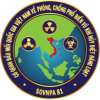Outcomes Joint FATF-MONEYVAL Plenary, 12-13 June 2025
A joint FATF-MONEYVAL Plenary meeting hosted at the Council of Europe and chaired by FATF President, Elisa de Anda Madrazo, and MONEYVAL Chair, Nicola Muccioli, concluded today, strengthening global efforts to disrupt criminal activity.
The Global Network of over 200 jurisdictions and observers engaged in two days of technical discussions addressing key issues in money laundering, terrorism financing and proliferation financing.
After consultation with a broad range of stakeholders, the joint Plenary approved changes to the FATF Standards that will improve the safety and security of cross-border payments, in line with the G20 initiative to make payments faster, cheaper, more transparent and accessible.
This meeting marked a significant milestone by approving Council of Europe – Moneyval’s mutual evaluation of Latvia. This is the first evaluation under the new round of mutual evaluations which focuses on assessing how effectively countries are combatting money laundering, terrorist financing and proliferation financing in relation to risks they face.
The meeting considered progress made by three MONEYVAL members in addressing technical compliance shortcomings, within the framework of MONEYVAL Compliance Enhancing Procedures. These members will report back again in December 2025.
The Plenary approved a number of reports and resources for publication by the FATF in the coming months which will help countries stay alert and respond to the latest illicit finance threats in line with a risk-based approach. This includes updated guidance to support financial inclusion by bringing more people around the world into the formal financial sector.
New FATF procedures were also agreed to help prevent the misapplication of measures to protect non-profit organisations (NPOs) from abuse.
The Plenary also decided to remove Croatia, Mali and the United Republic of Tanzania from the FATF list of jurisdictions under the increased monitoring following successful on-site visits, and updated statements on ‘high-risk and other monitored jurisdictions’. Bolivia and the Virgin Islands (UK) were added to the list of jurisdictions under increased monitoring.
The FATF suspension of the Russian Federation continues to stand (see February 2024 statement).
Compliance with the FATF Standards
High-risk and other Monitored Jurisdictions
Jurisdictions under increased monitoring
These jurisdictions are actively working with the FATF and the Global Network to address the strategic deficiencies in their regimes to counter money laundering, terrorist financing and proliferation financing. When the FATF places a jurisdiction under increased monitoring, it means the country has committed to implement an Action Plan to swiftly resolve the identified strategic deficiencies within agreed timeframes.
At this Plenary, the FATF added Bolivia and the Virgin Islands (UK) to the list of jurisdictions subject to increased monitoring.
Jurisdictions no longer under Increased Monitoring
The Plenary congratulated Croatia, Mali and the United Republic of Tanzania for positive progress in addressing the strategic anti-money laundering and countering the financing of terrorism and proliferation financing (AML/CFT/CPF) deficiencies previously identified during their mutual evaluations. The jurisdictions have completed their Action Plans within agreed timeframes and will no longer be subject to the FATF’s increased monitoring process.
Croatia, Mali and the United Republic of Tanzania will continue working with their respective FATF-Style Regional Bodies to sustain improvements in their AML/CFT/CPF systems.
Jurisdictions subject to a Call for Action
The FATF identifies countries or jurisdictions with serious strategic deficiencies to counter money laundering, terrorist financing, and proliferation financing. These jurisdictions are subject to a call for action to protect the international financial system.
Council of Europe – MONEYVAL Mutual Evaluation Report of Latvia
The plenary adopted the Council of Europe – Moneyval mutual evaluation report of Latvia which assessed the effectiveness of the country’s AML/CFT/CPF measures, and their compliance with the FATF Recommendations.
The report will be published in late 2025 following a quality and consistency review.
Council of Europe – MONEYVAL Compliance Enhancing Procedures
MONEYVAL places members that are under enhanced follow-up into Compliance Enhancing Procedures if, at the end of the third year following adoption of their latest mutual evaluation report, moderate or major shortcomings remain for any of the core FATF Recommendations. Czechia, Georgia, and the Slovak Republic are currently covered by these procedures – each in respect of one Recommendation where moderate shortcomings remain. All three members re-iterated their commitment to addressing remaining shortcomings and will report back to the MONEYVAL plenary again in December 2025.
FATF Membership Issues
The FATF suspension of the membership of the Russian Federation continues to stand. Following the statements issued since March 2022, the FATF reiterates that all jurisdictions should be vigilant to current and emerging risks from the circumvention of measures taken against the Russian Federation in order to protect the international financial system.
Strategic Initiatives
Strengthening payment transparency – Recommendation 16 of the FATF Standards
Following extensive consultation with banks and other financial institutions, payment service providers, international and specialised bodies, civil society, academia and others, the Plenary approved changes to Recommendation 16 of the FATF Standards, that will improve detection of crimes and implementation of sanctions by increasing clarity on who is sending and receiving money in cross-border payments over 1000 USD/EUR.
By streamlining the requirements for information that must be collected in payment messages, the changes will improve efficiency of cross-border payments. New requirements around the use of technology to prevent fraud and error will also better protect customers.
The revised Standards will be formally published on 18 June 2025, and financial institutions will need to comply with the changes from 2030. The FATF is working closely with civil society and industry bodies to ensure that the changes promote financial inclusion and align with data protection and privacy requirements.
Financial Inclusion and the Risk-based Approach
After strengthening Recommendation 1 of the FATF Standards on a risk-based approach earlier this year, the FATF endorsed updated guidance that will empower financial institutions and other providers to boost financial inclusion.
The new guidance, to be published later this month, will equip practitioners and policy-makers with practical examples of how they can apply simplified measures where risks are assessed to be lower. This includes approaches to address de-risking, which occurs when financial institutions deny financial services to customers, rather than assessing and managing risks in line with the risk-based approach.
This will be complemented by a new national risk assessment toolkit, also approved this week, which will help guide countries in implementing the risk-based approach.
The FATF has also agreed on revisions to its assessment methodology to bring it in line with the changes to Recommendation 1. These revisions reflect a stronger focus on the application of the risk-based approach and will guide assessors in future assessments.
All of this will bring financial activity into authorities’ line of sight, while also supporting growth and development. By facilitating more people’s access to financial services, countries can support the estimated 1.4 billion people around the world who are currently unbanked.
Mitigating Unintended Consequences of Misapplication of the FATF Standards
The FATF agreed new procedures to ensure that AML/CFT measures do not impede positive work of civil society. This new process builds on past reforms to ensure that the FATF can identify, consider and address NPO-related unintended consequences of misapplication of FATF Standards wherever they occur in assessment processes including mutual evaluations and the different follow-up processes. The new process leverages the strengths of both FATF and the Global Network, ensuring that the Global Network can address misapplications of the FATF Standards in a timely and effective manner.
Responding to illicit finance risks
The Plenary approved a number of new reports which will help the international community stay alert to emerging risks. Following a period of consultation with the private sector earlier this year, the Plenary will soon publish a report examining complex proliferation financing and sanctions evasions schemes. This project aims to build upon and update existing FATF guidance on Counter Proliferation Financing and provide contemporary information for Global Network members and the private sector to implement their obligations to combat the proliferation of the financing of weapons of mass destruction.
The Plenary also approved for publication the most extensive global assessment of terrorist financing risks to date. With contributions from more than 80 jurisdictions, the report will provide a detailed overview of how terrorist organisations and individuals around the world raise, move, store, and spend funds as of 2025, as well as anticipated trends over the next three to five years.
Additionally, the FATF’s 6th Targeted Update Report was approved for publication later this month, which will assess jurisdictions’ implementation of the FATF’s Standards in relation to Virtual Assets and Virtual Asset Service Providers.
International collaboration and supporting the Global Network
New resources were also approved by the FATF, including guidance developed in partnership with the Egmont Group, Interpol, and the UN Office on Drugs and Crime, to strengthen international collaboration on money laundering detection, investigation and prosecution.
In the margins of the Plenary, the FATF Secretariat is bringing together donors and providers of technical assistance at a side event tomorrow (14 June 2025) aimed at ensuring the Global Network has the support they need in the fight against financial crime. Chairs of FATF-Style Regional Bodies will also participate tomorrow in the high level annual meeting aimed at strengthening cohesion and sharing knowledge and common goals across the Global Network.
This week delegates also continued to benefit from the participation of Kenya, the Cayman Islands and Senegal, under the guest initiative aimed at increasing inclusivity and better taking into account regional specificities at the FATF.
fatf-gafi.org
NGUYEN Thanh Tung – CQTT81






